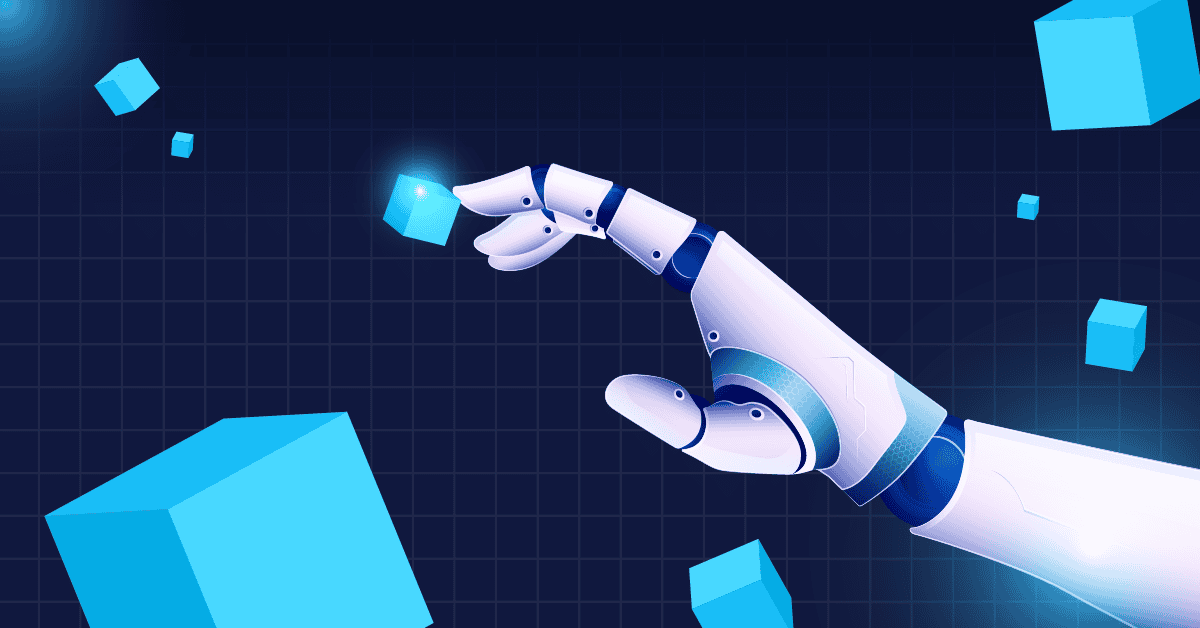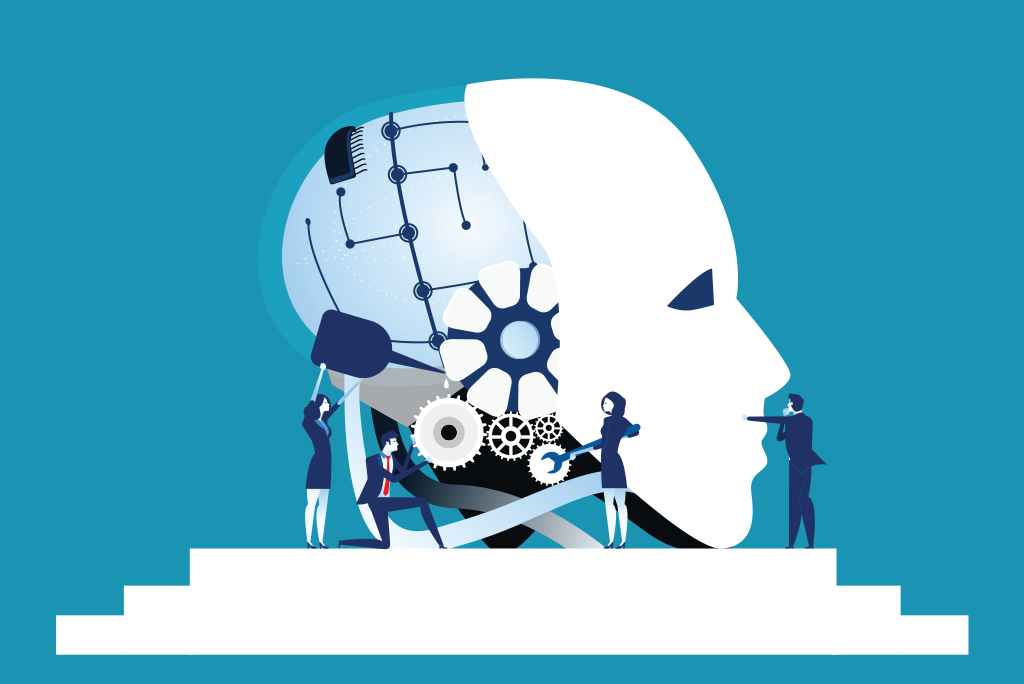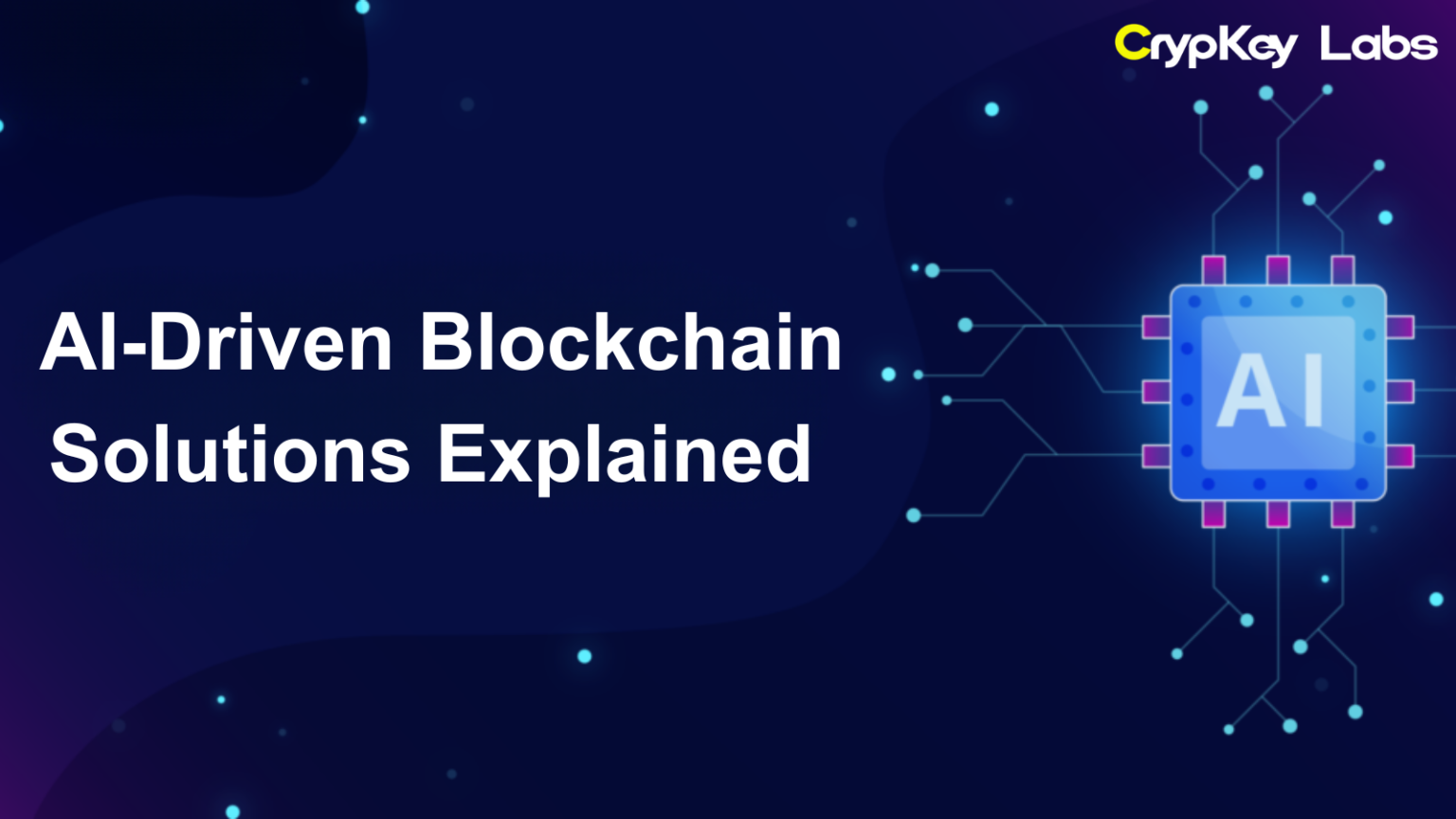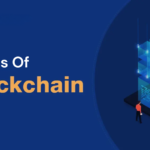The fusion of artificial intelligence (AI) and blockchain is reshaping industries, offering unprecedented levels of efficiency, security, and innovation. These two transformative technologies, when combined, are unlocking new possibilities that go beyond the capabilities of each on its own. While blockchain provides a decentralized and transparent system for securing data, AI brings intelligence, automation, and adaptability to the equation. Together, they’re powering smarter, more efficient systems that can revolutionize industries like finance, healthcare, supply chain management, and more.
In this blog, we’ll dive into the details of how AI and blockchain complement each other, explore real-world applications, highlight the benefits, and look at the challenges. By the end, you’ll have a clear understanding of why AI-driven blockchain solutions are the future.
What is Blockchain? 
Before we explore how AI can enhance blockchain, let’s quickly review what blockchain is. Blockchain is a decentralized, distributed ledger that records transactions across a network of computers. Instead of relying on a central authority, like a bank, blockchain uses consensus mechanisms to verify and add transactions to the ledger.
Key features of blockchain include:
- Decentralization: No single entity controls the network.
- Transparency: Transactions are visible to all participants.
- Immutability: Once data is recorded, it cannot be altered.
- Security: Cryptographic algorithms protect the data from tampering or unauthorized access.
While blockchain is best known as the technology behind cryptocurrencies like Bitcoin, its applications extend far beyond that. From supply chain management to digital identity verification, blockchain is transforming industries. However, despite its strengths, blockchain has limitations—this is where AI comes in.
How AI and Blockchain Complement Each Other
AI and blockchain, on their own, are game-changing technologies. But together, they create a synergy that amplifies their individual strengths and mitigates some of their weaknesses.
- AI needs data, and blockchain is a secure, reliable source of data. Blockchain can store vast amounts of structured and unstructured data, ensuring data integrity and immutability. AI can use this data to train models, perform analytics, and make predictions.
- Blockchain enhances trust, and AI optimizes decision-making. One of blockchain’s key strengths is the elimination of the need for trust in transactions. AI, on the other hand, uses algorithms and machine learning to make informed, optimized decisions based on data. When AI processes data from blockchain, the results can be trusted because the data’s integrity is guaranteed.
By combining the transparency of blockchain with the decision-making prowess of AI, industries can create more efficient, secure, and automated systems.
AI’s Role in Enhancing Blockchain Solutions
Let’s explore specific ways in which AI enhances blockchain-based systems.
Automation and Smart Contracts
Smart contracts are self-executing contracts with the terms of the agreement directly written into code. These contracts automatically trigger actions (like payments or data exchanges) when certain conditions are met. AI can take this automation a step further by intelligently analyzing data to make real-time decisions that activate smart contracts.
For instance, in supply chain management, an AI system could monitor weather conditions and, based on predictions, adjust contracts for shipping times or insurance automatically. This combination of AI’s predictive power and blockchain’s automation ensures that processes are optimized without human intervention.
Data Analysis and Optimization
Blockchain’s decentralized nature generates enormous amounts of data. This data is often complex and requires advanced techniques to extract valuable insights. AI excels at this kind of data analysis.
For example, AI can sift through blockchain data to identify patterns or trends that would be impossible for humans to detect. In the financial industry, AI could analyze blockchain transaction data to predict market trends or detect unusual patterns that might indicate fraudulent activity. This can help businesses make data-driven decisions with greater speed and accuracy.
Security Enhancements
Blockchain is already secure due to its decentralized and encrypted nature, but AI can bolster this even further. AI algorithms can detect anomalies and identify potential cyberattacks before they happen.
AI can monitor blockchain networks for unusual patterns or transactions that deviate from the norm, providing an early warning system for potential security breaches. By analyzing historical data and continuously learning from new data, AI can improve its accuracy in detecting and preventing fraud, making blockchain networks even more secure.
Real-World Applications of AI-Driven Blockchain Solutions
The integration of AI and blockchain has incredible potential, though blockchain is not yet a prominent feature in certain industries. However, as blockchain technology evolves, it will likely become a key component in many areas. Let’s look at a few industries where AI and blockchain will shape the future.
Supply Chain Management
Supply chains are inherently complex, involving multiple stakeholders and requiring high levels of transparency. While AI already helps optimize supply chains by predicting delays due to factors like weather or geopolitical events, blockchain will eventually add a new level of accountability by ensuring that every transaction, from manufacturing to shipping, is securely recorded and immutable. This combination will reduce the risk of fraud and boost overall efficiency, ensuring that goods are tracked in real-time with full transparency.
Finance and Banking
AI is currently transforming the financial industry, from automating tasks like credit scoring to detecting fraudulent activities in real-time. As blockchain becomes more integrated into financial systems, it will enhance transparency and security in these processes. AI could then analyze transaction patterns on blockchain networks, offering a robust method to prevent fraud or money laundering. In the future, the decentralized nature of blockchain will complement AI’s data-driven decision-making, making financial services more efficient and trustworthy.
Healthcare Data Management
The healthcare sector generates vast amounts of sensitive data, which AI is already analyzing to deliver insights for improved patient care, diagnosis, and treatment. While blockchain is not yet widely adopted in healthcare, its future role is promising. Blockchain will ensure that medical records are securely stored, protecting patient privacy and data integrity. AI could then analyze blockchain-secured records to detect patterns in disease outbreaks or predict patient outcomes, leading to more personalized treatments and a higher standard of care.
Benefits of AI-Driven Blockchain Solutions
Now that we’ve explored some real-world applications, let’s look at the broader benefits of combining AI and blockchain.
Improved Efficiency
AI-driven blockchain solutions automate repetitive tasks and optimize processes. This results in faster decision-making and reduced manual intervention, saving time and resources.
For example, AI can automate processes like contract validation, payment processing, and data verification on the blockchain, allowing businesses to operate more efficiently.
Enhanced Decision-Making
AI’s ability to analyze vast amounts of data quickly and accurately leads to better decision-making. By combining this with blockchain’s transparency and data integrity, businesses can make informed, data-driven decisions with confidence.
In industries like finance and supply chain management, this means fewer mistakes, faster responses, and better overall outcomes.
Increased Security and Trust
Blockchain’s decentralization and cryptographic security provide a strong foundation for data protection, but AI adds an additional layer of security. AI’s ability to detect anomalies and predict threats means that blockchain networks are more resilient to attacks and fraud.
By combining these technologies, businesses can build systems that are not only secure but also trustworthy and transparent.
Challenges and Considerations
While the potential for AI-driven blockchain solutions is vast, there are challenges to consider.
Data Privacy Concerns
AI often requires large datasets to be effective, and this can raise concerns about data privacy. While blockchain provides a secure way to store and share data, it’s important to ensure that personal information is protected and that AI algorithms are used responsibly.
Scalability Issues
Blockchain networks, particularly public blockchains, can struggle with scalability. Adding AI to the mix could exacerbate these issues, as AI algorithms require significant computational power. It’s essential to develop solutions that can scale effectively as both technologies evolve.
Integration Complexity
Integrating AI into existing blockchain systems can be complex and requires significant technical expertise. Businesses must ensure that their AI models are compatible with blockchain platforms and that they have the infrastructure to support both technologies.
The Future of AI-Driven Blockchain Solutions
The future of AI-driven blockchain solutions is bright, with endless possibilities for innovation. As both technologies continue to advance, we’re likely to see new applications emerge in areas like decentralized AI marketplaces, where AI models are traded and deployed on blockchain networks.
Additionally, AI could play a significant role in blockchain governance, automating decision-making processes within decentralized autonomous organizations (DAOs) and ensuring fair and transparent management of blockchain networks.
Conclusion
AI-driven blockchain solutions are revolutionizing industries by combining the security and transparency of blockchain with the intelligence and efficiency of AI. From automating smart contracts to optimizing supply chains and improving data security, the potential applications are vast.
While challenges like data privacy and scalability need to be addressed, the future of AI and blockchain integration is full of promise. Businesses that embrace this technology will be better positioned to thrive in an increasingly digital, decentralized world.
By understanding how these technologies complement each other and exploring their real-world applications, you can stay ahead of the curve and leverage AI-driven blockchain solutions to enhance your operations.







